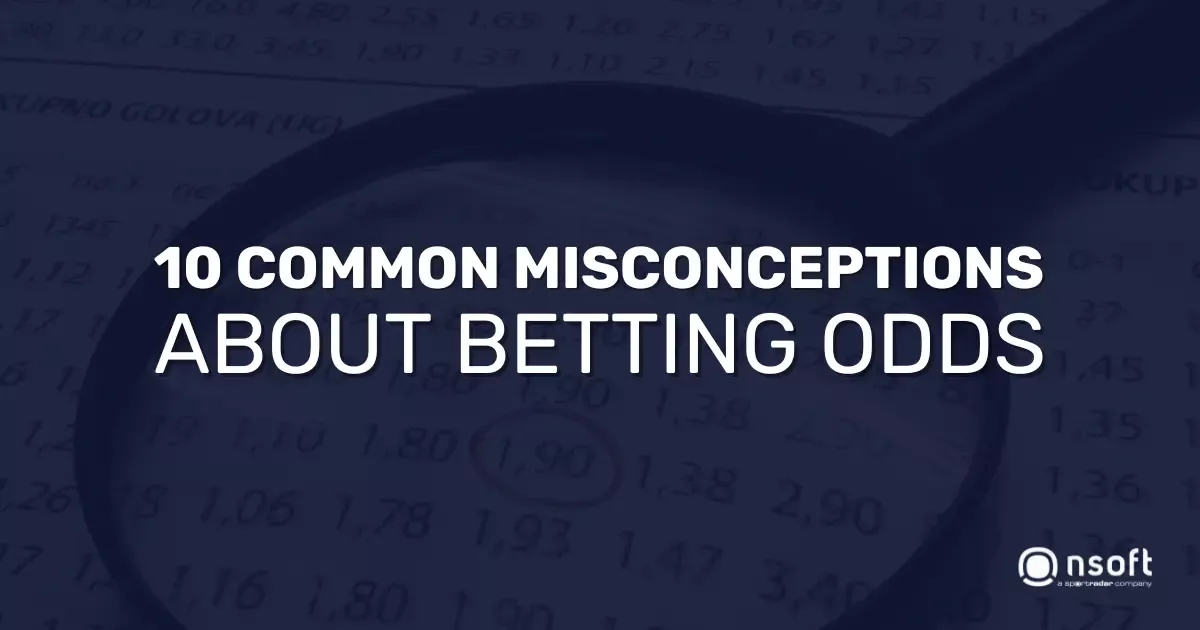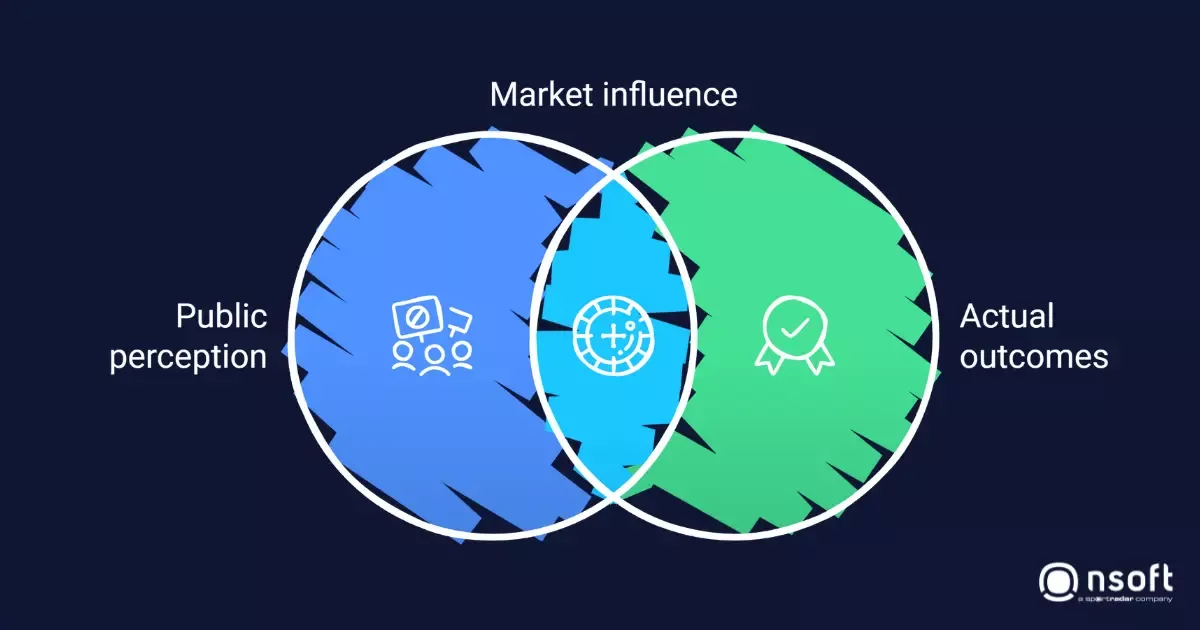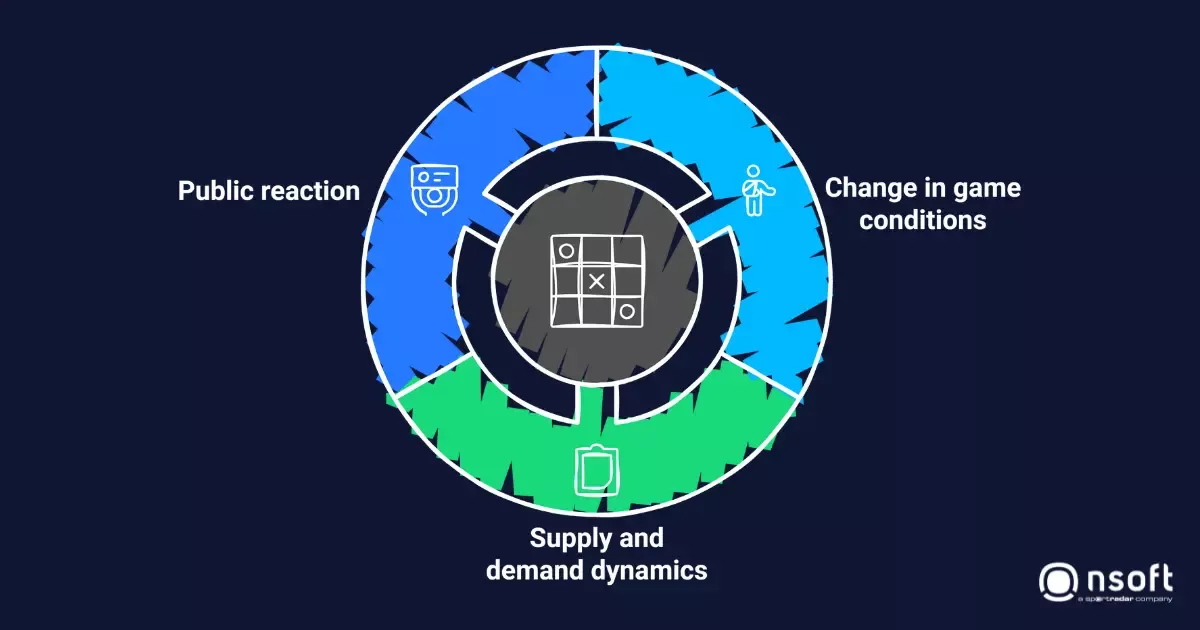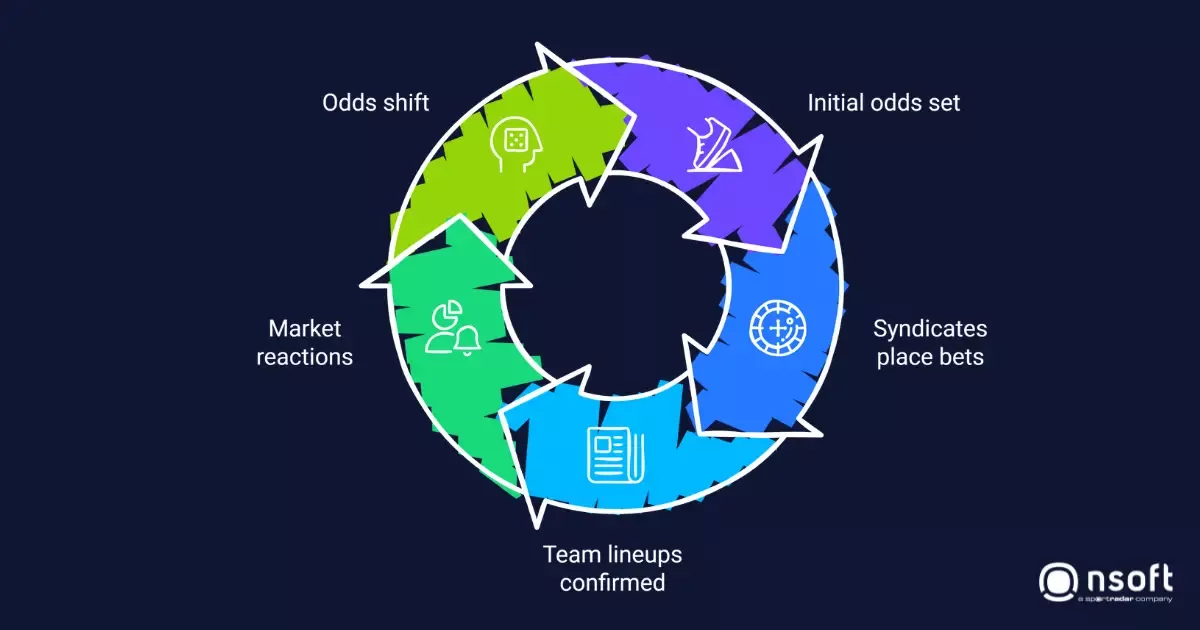Myth-Busting: 10 Common Misconceptions About Betting Odds

- Myth #1: “Odds Predict Outcomes”
- Myth #2: "The House Always Wins Because It’s Rigged"
- Myth #3: "You Just Need One Sure Strategy to Win Consistently"
- Myth #4:“If Odds Shift, Somebody Knows Something.”
- Myth #5: "Round Numbers in Odds Are Suspicious”
- Myth #6: "American, Decimal, and Fractional odds are completely different things"
- Myth #7: "Favorites Are a Safe Bet"
- Myth #8: All Bookies Set the Same Odds
- Myth #9: "Early Odds Are More Accurate"
- Myth #10: "You Can't Beat the Closing Line"
- The Bottom Line
When you've been in the game as long as I have (let’s just say 20+ years and leave it at that), you see a lot of misunderstandings about how betting odds work. Some are funny, others are baffling, and a few could even cost you money. So, let’s clear up the fog with some cold, hard facts.
Myth #1: “Odds Predict Outcomes” #
Odds represent probability and what the market (read: other bettors) is doing. Think of odds like stock prices: they react to what people think will happen, not what will actually happen. A 2.00 (or +100) line means there's a 50% probability based on our models, not a guarantee.

Storytime: Back in 2014, the Denver Broncos were favored to win the Super Bowl against the Seahawks. Their odds? Short. The result? A 43–8 massacre. Did the odds see that coming? Absolutely not. Because odds aren’t fortune tellers; they’re just numbers informed by models, betting activity, and public sentiment. Broncos bettors? They learned that lesson the hard way.
Myth #2: "The House Always Wins Because It’s Rigged" #
*Laughs in trading desk panic.* Tell that to my gray hairs from the 2016 Leicester City Premier League victory. The house doesn't always win—we’re just good at risk management. The odds are calculated to give us an edge over time, not on every single bet. So no, it’s not rigged—it’s called running a business. We’re not a charity.
Myth #3: "You Just Need One Sure Strategy to Win Consistently" #
Ah, yes, the holy grail of betting: the “sure thing” strategy. Let me stop you right there. Betting isn’t a “hackable” game. Sharp bettors can lose, and casual bettors can hit huge wins—that’s the nature of probabilities.
Over the years I’ve seen people chasing losses (“double up until you win”), arbitrage strategies, “bet the underdog, it’s where the value is,” etc. Guess what? None of them are foolproof. You can manage risk, but you can’t eliminate it. If someone had a true system, they wouldn’t be tweeting about it—they’d be on a yacht.
Myth #4:“If Odds Shift, Somebody Knows Something.” #
Odds shift because something changed, not because of inside info. Maybe the star player is out with an injury, or there’s been a late-breaking roster update. Also, if everyone starts betting one side, odds might shift to encourage bets on the other side. It’s supply and demand, not espionage.

Remember when Messi announced he was joining PSG? The odds for Ligue 1 shifted immediately. Why? The public went nuts and started piling on PSG to win the league. It wasn’t insider info—it was millions of people suddenly thinking, “Messi’s here, it’s a lock.” Odds react to what people do.
Myth #5: "Round Numbers in Odds Are Suspicious” #
This one always cracks me up. We don't avoid round numbers like 2.00 or 3.00 just to look more "legitimate." Sometimes the math just works out that way. We're not sitting here thinking "2.00 looks too neat, let's make it 2.03 to seem more scientific."
Myth #6: "American, Decimal, and Fractional odds are completely different things" #
They're actually just different ways of showing you the same thing: your payout versus your stake. Your chances of winning don't magically improve because you're looking at +200 instead of 2.00 or 2/1. It's just that Americans, Europeans, and Brits can't agree on which system to use (shocking, I know).
Myth #7: "Favorites Are a Safe Bet" #
If you think the odds-on favorite is a sure thing, I’ll take your money. Favorites are statistically more likely to win, but sports are unpredictable. Upsets happen all the time. If favorites were sure things, bookies would be out of business, and I’d be writing “10 Myths About Selling Real Estate” instead.
Myth #8: All Bookies Set the Same Odds #
Every bookmaker has its own models and risk tolerance. Sure, there’s a general market consensus, but you’ll see different odds because each book manages its exposure differently.
So-called “sharp” books may go lower to avoid high-risk bets, while others stick closer to public opinion to bring in volume. So, if you’re savvy, you can find discrepancies by shopping around. But no, we’re not all copying and pasting from the same spreadsheet.
Myth #9: "Early Odds Are More Accurate" #

Our opening lines are just the starting point. Once syndicates start placing bets, teams confirm their lineups, and other markets come into play, the odds shift. I’ve seen opening lines move 20% or more when serious action starts flowing. The early bird might get the worm, but it also might get terrible value.
Myth #10: "You Can't Beat the Closing Line" #
This one’s half true. Closing lines are typically sharper because they reflect the most up-to-date information and betting action. But they’re not invincible, especially in niche markets. In emerging sports or lower leagues, you can sometimes get better prices early—if you’ve done your homework.
The Bottom Line #
Betting odds are probabilities, market psychology, and risk management rolled into one—not a cheat sheet for guaranteed outcomes. After 20+ years setting these numbers, the only thing I know for sure is that nothing in betting is certain. Forget the myths, pay attention to what the odds are actually telling you, and always remember: if you think you’ve cracked the system, you haven’t.
Remember: This article is for educational purposes only. Understanding odds is important, but it doesn't guarantee success in betting. Always gamble responsibly and within your means.
Tags:
Related Articles
Interviews & Editorials
15.04.2024.
The Mechanics of Betting Odds Explained by an Industry Insider
Get the scoop on betting odds from NSoft’s Head of Trading! Learn how to read and make sense of decimal, fractional, and American odds with clear examples and sharp insights.
Learn more
News / Interviews & Editorials
16.04.2025.
Beyond the Bet: How Gamification is Reshaping Online Gambling
By making the gamification elements fun, relevant, and optional, you ensure that they enhance the betting experience rather than overshadow it.
By Marko Galić, Game Mathematician & Project Manager at NSoft
Learn more
News / Interviews & Editorials
08.04.2025.
The Formula One Race Report
Attending a Formula One Grand Prix is a bucket-list experience for many motorsport fans but while the roar of the engines and the glamour of race days are undeniably exciting, the cost of attending is a luxury few can regularly afford.
We break down the true cost of attending a race weekend this season, ranking Grand Prix events. So which one offers the best value for money?
Learn more
Didn’t Find What You’re Looking For?
Our team will be happy to guide you through our products and services.
Contact us
